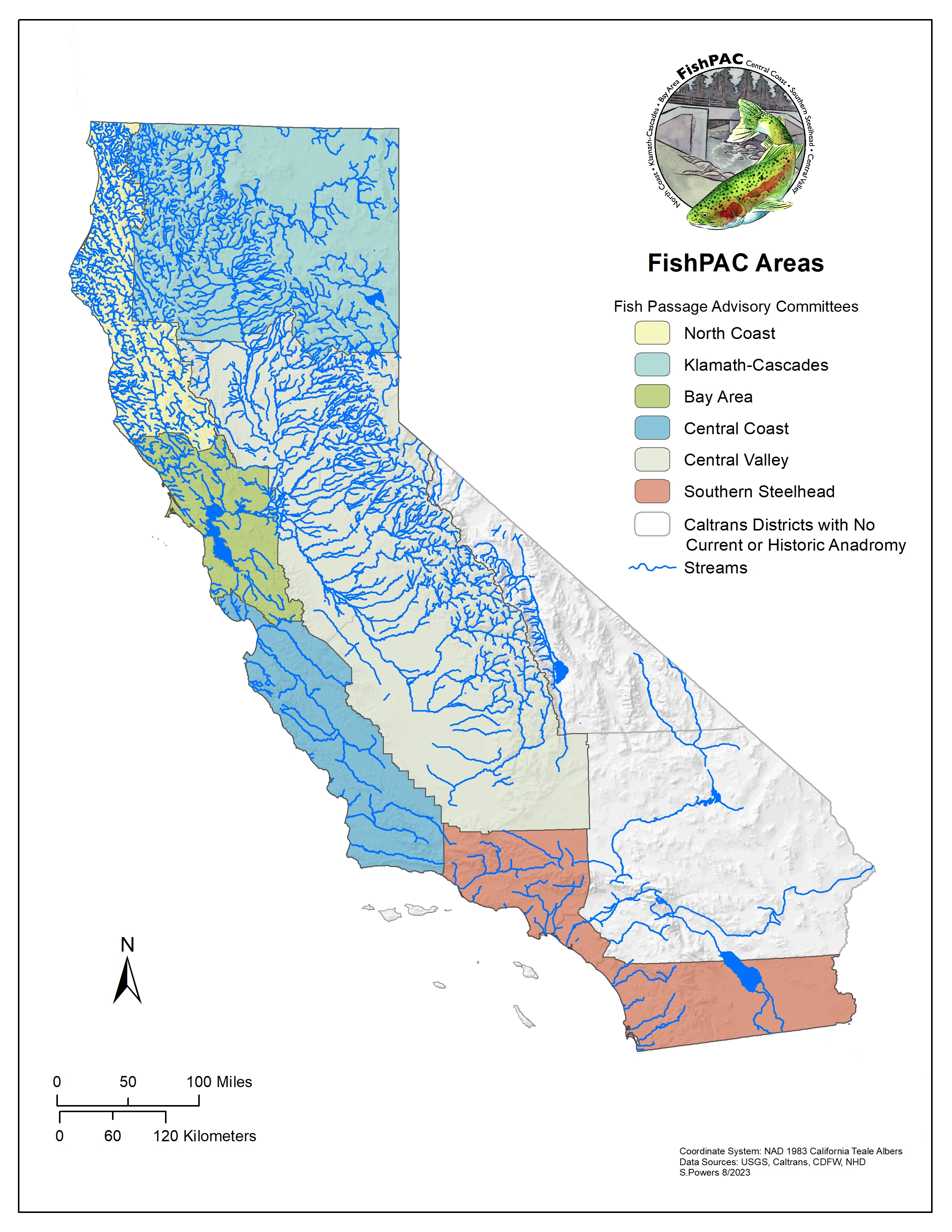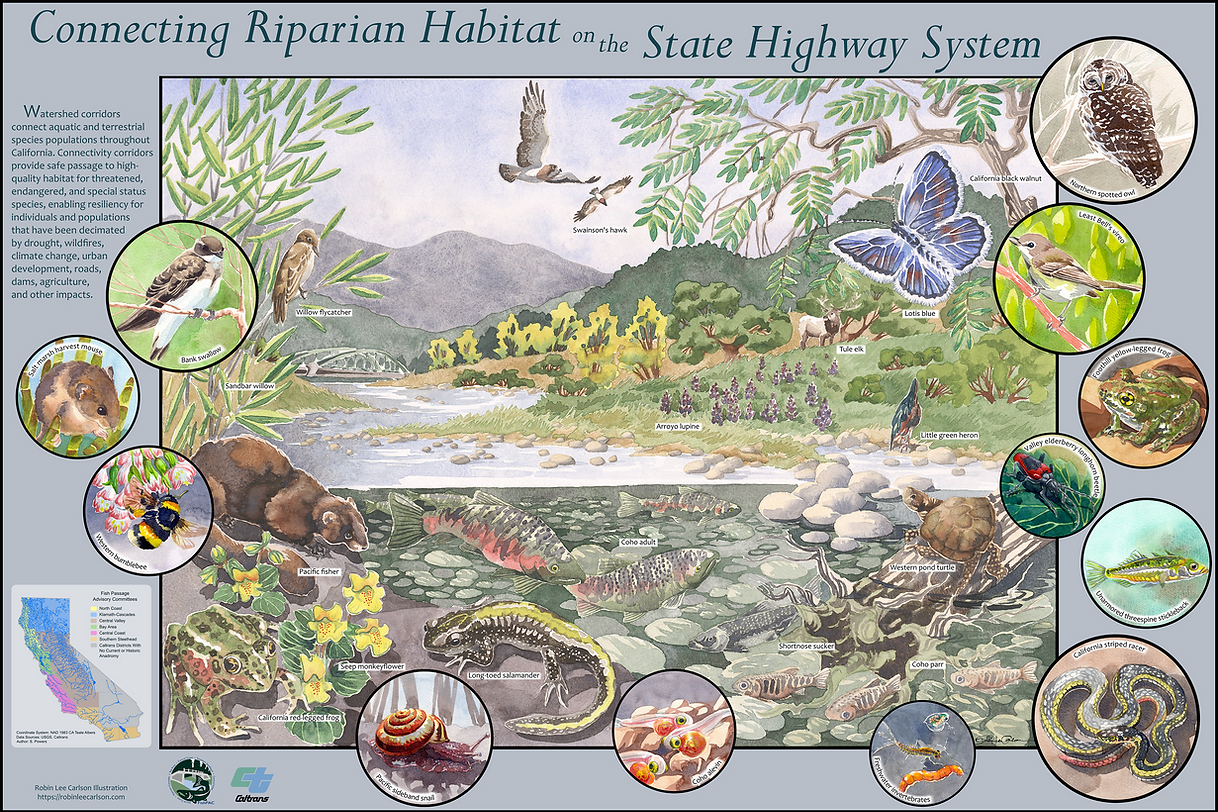Connectivity
Multi-species Benefits
The State Highway System currently offers some opportunities for species migration in providing access to high quality habitat for threatened and endangered, as well as listed species. However, there are many opportunities to improve connectivity and identify where high priority connectivity improvements are needed.
The multi-species connectivity story map demonstrates some camera studies that have identified where species are currently crossing, attempting to cross, or where there may be needs to further consider science and data in determining new connectivity improvement opportunities.
Riparian Habitat
Caltrans integrates fish and wildlife considerations into the design of state highway structures to improve habitat connectivity for native fish and wildlife species. The result of sound planning, design, and implementation is a suite of aquatic and terrestrial species, many of which are threatened or endangered, that benefit from connected ecosystems as well as a highway system that efficiently moves people, goods, and services throughout California.
Download a printable high-resolution poster (24x36 PDF; 6.49 MB).
Watershed Across FishPAC
Watershed corridors connect aquatic and terrestrial species populations throughout California. Watershed connectivity corridors can provide safe passage to high-quality habitat for threatened, endangered, and special status species, enabling resiliency for individuals and populations that have been decimated by drought, wildfires, climate change, urban development, over hunting, roads, dams, agriculture, and other impacts.

Click image to expand
